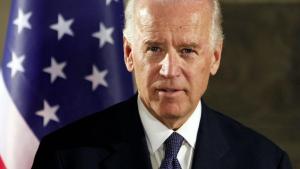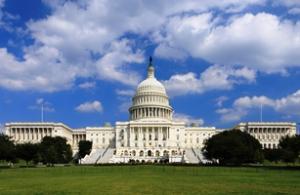The Nebraska Supreme Court hears a challenge to the state's medical marijuana initiative, Minnesota releases an audit of asset forfeiture practices in the state, and more.
Joe Biden's approach to drug policy appears still rooted in the last century, the Trump administration releases mandatory guidelines for hair follicle testing for truck drivers, and more.
Maine finally issues its first adult-use marijuana business licenses, a mass killing at an illegal California marijuana grow leaves seven dead, and more.
The federal Medical Marijuana Research Act of 2019 is heading for the House floor, New Jersey Republican party leaders come out hard against marijuana legalization, and more.
The Nebraska Supreme Court blocks the state from voting on a medical marijuana initiative, both houses of the Virginia legislature pass marijuana expungement bills, and more.
Montana's marijuana legalizers are now facing organized opposition, House members have filed a law enforcement-supported meth bill, and more.
There is a landmark settlement in the killing of Breonna Taylor, the federal government hints at a move toward the use of hair follicle testing for federal employees, and more.
Despite marijuana legalization, Black DC residents still make up 90% of pot arrestees; human rights groups challenge a pending drug execution, and more.
The Nebraska Supreme Court hears a challenge to the state's medical marijuana initiative, Minnesota releases an audit of asset forfeiture practices in the state, and more.

An audit of asset forfeiture practices in Minnesota finds it hurts poor people more than it helps law enforcement. (CC)
Pennsylvania Republicans Block Governor's Call for Marijuana Legalization. A day after Gov. Tom Wolf (D) called on the legislature to pass marijuana legalization to help the state budget, legislative Republicans are still blocking any progress. "There is just not the support in the caucus for legalizing marijuana right now," Jason Gottesman, a spokesman for House Majority Leader Kerry Benninghoff (R-Centre) said Thursday.
Medical Marijuana
Nebraska Supreme Court Hears Lawsuit Seeking to Block Medical Marijuana Initiative. The state Supreme Court heard arguments Thursday from both sides on the constitutionality of a medical marijuana initiative that has already qualified for the ballot. The initiative is being challenged by Lancaster County Sheriff Terry Wagner, even though it has already passed constitutional muster by state officials. The court has until September 11th to rule on this ballot measure and decide whether Nebraska voters will get to decide on medical marijuana.
Asset Forfeiture
Minnesota Audit Criticizes Asset Forfeiture Practices. State Auditor Julie Blaha released an annual report on asset forfeiture practices on Wednesday, and highlighted the fact that most seizures are from low income people and hurts them more than they help law enforcement. "The data shows that when it comes to the impact of forfeitures, the big story is in the small numbers," Blaha said in a statement. "Those kinds of amounts have a small impact on government systems, but they have a big impact at the individual level. If you are managing a public safety budget, small forfeitures are a minor and unpredictable part of your revenue stream," Blaha continued. "But if you are a low-income person experiencing a forfeiture, those amounts can have a big effect on your life. Having a few hundred dollars seized can mean the difference between making rent or homelessness. Losing that old car can lead to missing work and losing your job."
back to top
Joe Biden's approach to drug policy appears still rooted in the last century, the Trump administration releases mandatory guidelines for hair follicle testing for truck drivers, and more.

Joe Biden wants treatment not jail for drug offenders, but he wants to make treatment mandatory. (Creative Commons)
Vermont Lawmakers Get Closer to Deal on Legal Marijuana Sales. The House and Senate are drawing nearer to a final agreement on legislation that would allow for legal marijuana sales in the state. The main sticking point now appears to be how towns will earn revenues from the trade. The Senate wants to impose a 2% tax on towns that host dispensaries, but the House wants to give towns money from marijuana licensing fees. Negotiators will meet later this week where they'll continue to hammer out the details of the bill.
Drug Testing
Trump Administration Releases Mandatory Guidelines for Hair Testing for Drugs in Truck Drivers. The Department of Health and Human Services (HHS) last Friday released for comment long-awaited mandatory hair-testing guidelines to screen drivers for drugs. The proposed Mandatory Guidelines for Federal Workplace Drug Testing Programs using Hair (HMG) "will allow federal executive branch agencies to collect and test a hair specimen as part of their drug testing programs." Under the guidelines, federal agencies doing drug testing, such as the Federal Motor Carrier Safety Administration (FMCSA) -- must collect at least one other specimen type, such as urine or oral fluid, authorized under the Mandatory Guidelines for Federal Workplace Drug Testing Programs. The agency also must provide procedures for use of an alternate specimen when a donor is unable to provide a sufficient amount of hair for faith-based or medical reasons, or due to an insufficient amount or length of hair, according to the proposal.
Drug Treatment
Joe Biden Calls for Mandatory Drug Treatment for Drug Offenders. Democratic presidential nominee Joe Biden has called for mandatory drug treatment for drug offenders in return for not jailing them and clearing their records. "Anybody who gets convicted of a drug crime -- not one that is in terms of massive selling, but consumption -- they shouldn't go to prison. They should go to mandatory rehabilitation," Biden said at a campaign event in Kenosha, Wisconsin last week. "Instead of building more prisons, as I've been proposing for some time, we build rehabilitation centers." Drug reform advocates generally oppose coerced treatment.
International
Poll Has Support Dropping for New Zealand Marijuana Legalization Referendum as Election Day Nears. With a September 19 election day drawing near, a new poll has support for marijuana legalization declining. In March, 43% favored the referendum, with only 33% opposed. Now, a new poll has support at 39%, with 46% opposed. If voters approve the referendum on the Cannabis Legalization and Control Bill, the bill will then be introduced in Parliament.
(This article was prepared by StoptheDrugWar.org's 501(c)(4) lobbying nonprofit, the Drug Reform Coordination Network, which also pays the cost of maintaining this website. DRCNet Foundation takes no positions on candidates for public office, in compliance with section 501(c)(3) of the Internal Revenue Code and does not pay for reporting that could be interpreted or misinterpreted as doing so.)
back to top
Maine finally issues its first adult-use marijuana business licenses, a mass killing at an illegal California marijuana grow leaves seven dead, and more.

Meth and other drug us is up during the pandemic, a testing lab company reports. (Warner Robbins, GA, PD)
Seven Killed at Illicit California Marijuana Grow. Seven people were shot and killed over the weekend at an illegal marijuana grow outside the Riverside County town of Aguanga. Investigating authorities seized more than a thousand pounds of processed marijuana and hundreds of marijuana plants. The property had facilities to process that raw marijuana into high-THC cannabis oil. All of the victims were of Laotian descent.
Maine Issues First Active Licenses for Legal Marijuana Shops. The state Office of Marijuana Policy on Tuesday issued the first active licenses for recreational marijuana businesses, bringing the state one step nearer to actually allowing sales nearly four years after voters approved marijuana legalization in November 2016. Authorities issued three licenses for cultivation facilities, two for marijuana retail outlets, and one for a testing facility.
Methamphetamine
Meth Use Rose During Early Days of COVID Pandemic, Lab Report Finds. The drug testing laboratory firm Millennium Health reports that urine samples from across the US came back positive at a rate 20% higher in the early weeks of the pandemic compared to the same period before the pandemic began ratcheting up in early March. The increase was particularly dramatic in some states, with meth positives increasing two-fold in Nevada and nearly as much in Mississippi. The lab also reported increases in use of other drugs, such as fentanyl. "All US census divisions had a significant increase in adjusted UDT positivity rate for at least one drug, except the South Atlantic and West North Central. Notably, the East North Central and the East South Central had significant positivity rate increases for all four drugs. The West North Central saw significant decreases in positivity rates for all four drugs," the report said.
back to top
The federal Medical Marijuana Research Act of 2019 is heading for the House floor, New Jersey Republican party leaders come out hard against marijuana legalization, and more.

A marijuana research bill heads for a House floor vote after winning a committee vote Wednesday. (Creative Commons)
Key House Committee Advances Marijuana Research Bill. The House Committee on Energy and Commerce on Wednesday voted unanimously by voice vote to advance HR 3797, the Medical Marijuana Research Act of 2019. The bill would "amend the Controlled Substances Act to make marijuana accessible for use by qualified marijuana researchers for medical purposes, and for other purposes." The bill would remove all limits on the number of research entities that could be federally approved to grow or distribute marijuana and require the Department of Health and Human Services to report to Congress within five years on a review of marijuana research and whether it should be rescheduled. The bill now heads for a House floor vote.
New Jersey Republicans Formally Oppose Marijuana Legalization Initiative. GOP leaders from all 21 counties in the state unanimously backed a resolution Thursday opposing the legislatively sponsored marijuana legalization referendum that will appear on the November ballot. The Republican County Chairmen's Association called on its on their supporters to vote it down. "Pro-pot legislators may not care about the damage that legal pot will do to our children, families, schools and neighborhoods, but as an organization deeply dedicated to promoting a healthy and safe New Jersey, my chairmen colleagues and I felt obligated to speak out against the ballot question," Hudson County Republican Chairman Jose Arango said.
Drug Policy
New Report Highlights Racial Disparity in Massachusetts Drug and Weapons Charges. Researchers at Harvard Law School released a report Wednesday that finds Black and Latino defendants are more likely than White ones to be imprisoned for drugs and weapons crimes and more likely to get longer sentences than White ones. The study was sought by the chief justice of the state's highest court, and found that racial disparities in sentencing length are largely because Black and Latino tend to be initially charged more harshly for crimes that "carry longstanding racialized stigmas." The disparities remain even "after controlling for charge severity and additional factors," according to the report from the law school's Criminal Justice Policy Program.
Drug Testing
Supreme Court of Ohio Gives Employers the Green Light to Drug Test At-Will Employees Under Direct Observation When the Employees Give Broad Consent. The state's highest court has ruled that if an employer has a substance abuse policy that requires workers to undergo random suspicionless drug testing and workers sign a consent form allowing "any testing necessary," they implicitly agreed to allow "direct observation" testing and have no privacy claim. "Direct observation" testing mean having someone watch workers as they provide a urine sample to be tested.
back to top
The Nebraska Supreme Court blocks the state from voting on a medical marijuana initiative, both houses of the Virginia legislature pass marijuana expungement bills, and more.

A new federal bill would ease bail requirements for drug offenses. (Pixabay)
Virginia Legislature Passes Marijuana Expungement Bills. Both the state Senate and the House approved bills this week that would allow people with prior marijuana convictions to clear their records. The House passed its bill, HB 5146, Wednesday; the Senate followed suit with SB 5043 Thursday. The House bill has now been sent to the Senate Judiciary Committee. Now, the two chambers have to negotiate their differences to get an expungement bill to the desk of Gov. Ralph Northam (D).
Medical Marijuana
Nebraska Supreme Court Invalidates Proposed 2020 Medical Marijuana Legalization Initiative. The state's highest court ruled Friday that the medical marijuana initiative set to go before voters in November will not appear on the ballot because its language violates the state's single subject rule. The 5-2 ruling came in a case from a county sheriff and reversed a ruling from the secretary of state that rejected that argument. The court held that: "As proposed, the NMCCA contains more than one subject -- by our count, it contains at least eight subjects. In addition to enshrining in our constitution a right of certain persons to produce and medicinally use cannabis under subsections (1) and (2), in subsections (3) and (4), the NMCCA would enshrine a right and immunity for entities to grow and sell cannabis; and in subsections (6), (7), and (8), it would regulate the role of cannabis in at least six areas of public life. These secondary purposes are not naturally and necessarily connected to the NMCCA's primary purpose. As such, they constitute logrolling… The decision of the Secretary of State is reversed. We issue a writ of mandamus directing him to withhold the NMCCA from the November 2020 general election ballot."
Criminal Justice
Bipartisan Trio of Senators File Bill to Stop Feds from Throwing Drug Defendants in Jail Before They're Convicted. Sens. Dick Durbin (D-IL), Mike Lee (R-UT), and Chris Coons (D-DE) have introduced a bill that could potentially keep people charged with federal drug crimes out of unnecessary pretrial detention. The Smarter Pretrial Detention for Drug Charges Act of 2020 would change federal bail policies that currently presume people facing drug sentences of 10 years or more will be detained before trial. Under this bill, people facing such charges would no longer be treated with the presumption that they would be denied bail. Bail could still be denied, though, in the case of flight risk or danger to the community. The bill has the support of criminal justice reform groups across the political spectrum. The American Civil Liberties Union, the Innocence Project, and the Drug Policy Alliance all support it, as do Americans for Prosperity, Justice Action Network, Americans for Tax Reform (federal pretrial detention costs taxpayers $18,615 per defendant), and FreedomWorks.
back to top
Montana's marijuana legalizers are now facing organized opposition, House members have filed a law enforcement-supported meth bill, and more.

Bills seeking to declare a national methamphetamine emergency have been filed in both the House and Senate. (DEA.gov)
Montana Marijuana Legalization Initiatives Draw Organized Opposition. The Initiative 190 marijuana legalization initiative and its companion Constitutional Initiative 118 have finally drawn organized opposition. A group calling itself Wrong for Montana formed last week to focus on the "societal ills" of the substance, and the Montana Contractors Association, a builders' group, which opposes the initiatives, said it would help finance the group's efforts.
Vermont House Votes to Approve Marijuana Expungements by Wide Margin. The House last Friday voted overwhelmingly to approve a bill that would automatically expunge thousands of low-level marijuana convictions and double the amount of marijuana that people can grow and possess. The moves were included in a miscellaneous Judiciary Committee bill that still needs final action this week before heading to the Senate, which passed a similar bill in May.
Methamphetamine
New Bipartisan House Bill Would Declare Meth an Emerging Drug Menace. Following in the steps of the Senate, where Sens. Diane Feinstein (D-CA) and Charles Grassley (R-IA) filed an identical bill last month, a bipartisan handful of House members last Friday filed the Methamphetamine Response Act, a bill that would declare methamphetamine an emerging drug threat and would require the Office of National Drug Control Policy (ONDCP) to develop, implement and make public a national plan to prevent methamphetamine addiction and overdoses from becoming a crisis. The bill would require the White House Office on National Drug Control Policy (ONDCP—the drug czar's office) "to develop, implement, and make public, within 90 days of enactment, a national emerging threats response plan that is specific to methamphetamine." The bill is supported by the Fraternal Order of Police, HIDTA Director’s Association, The Sergeant’s Benevolent Association, Community Anti-Drug Coalitions of America (CADCA), and The National Association of Drug Court Professionals (NADCP), and the National Criminal Justice Association.
back to top
There is a landmark settlement in the killing of Breonna Taylor, the federal government hints at a move toward the use of hair follicle testing for federal employees, and more.

Drug war victim Breonna Taylor. Her family has settled with the city of Louisville. (Taylor family)
Utah Lawsuit Over Legislature's Replacement of Voter-Approved Medical Marijuana Initiative Dropped. Proponents of a voter-approved medical marijuana initiative have dropped a lawsuit challenging the state legislature's replacement of it with a more restrictive program have dropped their lawsuit against the state after the legislature backed off of a plan to have the state dispense the medicine to qualifying patients.
Drug Testing
Feds Push for Hair Follicle Drug Testing Despite Known Racial Disparities in Results. The Department of Health and Human Services has announced a proposal to set scientific and technical guidelines for the use of hair follicle specimens for drug testing federal workers—even though the hair follicle tests are known for producing racially disparate results. The proposal would allow executive branch agencies "to collect and test a hair specimen as part of their drug testing programs with the limitation that hair specimens be used for pre-employment (i.e., for applicants applying for federal testing designated positions) and random testing."
Law Enforcement
City of Louisville Reaches Settlement with Breonna Taylor Family. The city of Louisville has settled a lawsuit with the family of Breonna Taylor, the black women killed by Louisville police in a badly botched no-knock drug raid in which no drugs were found. In addition to a $12 million cash settlement, the settlement will require police commanders to approve all search warrant application, require police to undergo extensive risk assessments before applying for a warrant, and require that an EMT or paramedic by on site during the execution of search warrants. The settlement does not impact ongoing criminal investigations of the police involved in the raid.
International
UN Human Rights Chief Calls for End to Policies, Rhetoric That Lead to Abuses and Killings in the Philippines. United Nations High Commissioner for Human Rights Michelle Bachelet said Monday that the Philippine government should change policies that lead to killings and other human rights violations. Her remarks came during her opening statement at the 45th session of the Human Rights Council in Geneva. She said that human rights principals "require accountable policing and access to justice help to avert the escalation of tensions and grievances into violence and conflict." Bachelet acknowledged that the Philippine government has committed to investigate more than 5,000 drug war killings, but said that was just a first step. "We are seeking details from the government so we can advise and assess the review panel's scope, process and efficacy," Bachelet said. "However, beyond this initial process, there is clearly an urgent need to revoke the policies that continue to result in killings and other human rights violations, to bring to justice the perpetrators, and to halt the use of rhetoric inciting violence against people who use or sell drugs."
back to top
Despite marijuana legalization, Black DC residents still make up 90% of pot arrestees; human rights groups challenge a pending drug execution, and more.

The US Supreme Court ponders taking up an appeal of a lawsuit challenging the constitutionality of marijuana prohibition. (CC)
Marijuana Legalization Appeal Receives Unprecedented Support with the Filing of Nine Amicus Briefs. Plaintiffs in a lawsuit seeking to overturn the federal law that criminalizes marijuana are getting support. Nine amicus briefs supporting the lawsuit have been filed as it goes to the Supreme Court. Those filing supporting briefs include seven members of Congress, 19 major organizations, and a pair of prominent marijuana researchers and scientists. Only eight cases since 2008 have inspired as many amicus briefs. A decision by the U.S. Supreme Court is expected during this 2020-2021 term.
Washington, DC, Still Sees Huge Racial Disparity in Marijuana Arrests After Legalization. While marijuana arrests have declined by half in the five years since the city legalized the substance, police remain far more likely to arrest Blacks than Whites on marijuana charges. Blacks still account for just under 90% of all marijuana arrests, even though they make up only 45% of the population. Similarly, while Blacks and Whites are equally likely to use marijuana, Blacks made up 84% of all public consumption arrests.
International
Human Rights Groups Slam Singapore's Planned Execution of Drug Trafficker. A 44-year-old Malaysian man, Syed Suhail bin Syed Zin, is set to be executed for drug trafficking in Singapore on Friday, and human rights and anti-death penalty advocates are crying foul, calling the country's resort to capital punishment "callous."Human Rights Watch called the pending execution "barbaric" and called for the sentence to be commuted, while Amnesty International called on Singapore to "immediately halt this callous hanging."
back to top






